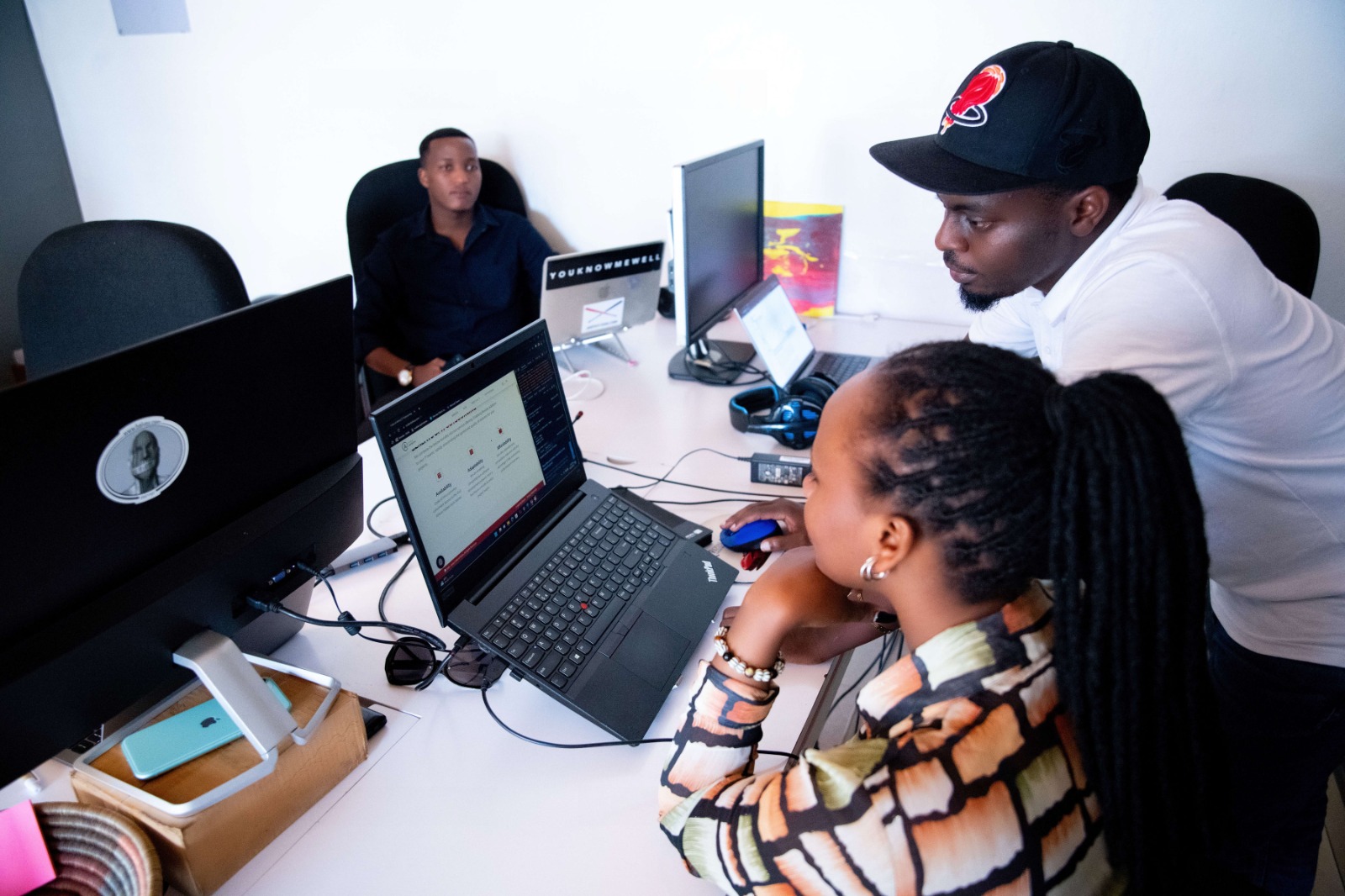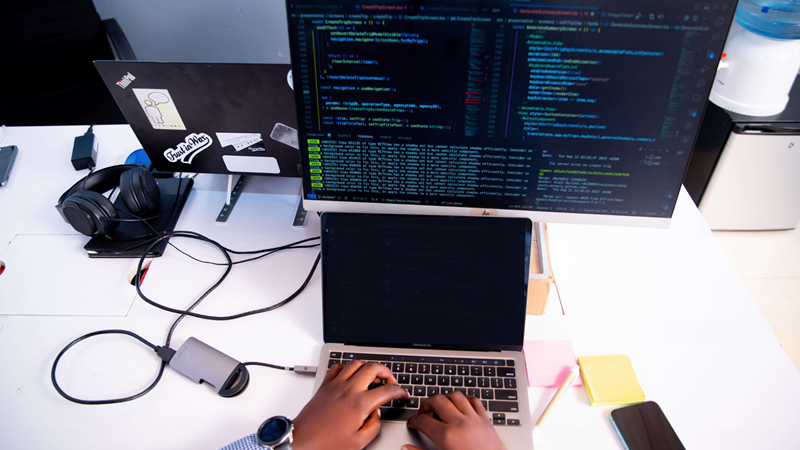Benefits and Challenges of Hybrid Working Models.
““Is remote working as efficient as working from the office”?”

How many times have you heard that the times have changed in the last two years? What about the "new normal"? There are many different perspectives on whether remote labor is beneficial or detrimental to firms. Reed Hastings, CEO of Netflix said “ I don’t see any positives,” whereas Suresh Kumar, CTO of Walmart said, “We haven’t coped, we've thrived”.
But what does the research say, how can we know, instead of just assuming, the effectiveness of fully remote work or a hybrid model? There are a multitude of questions to address. What is the ideal equilibrium between working from home and working in an office? Furthermore, who holds the decision-making power in this regard? Is it primarily the responsibility of managers, the employees, or both? Additionally, is there a set limit on the time an employee can work remotely? And who has the authority to determine such arrangements? The list goes on and on.
So many questions, no easy answers. The reason these questions are so difficult to answer is that there are many different ways to develop and aspects to consider when designing a remote/hybrid working model for your company. Models for employees and models that involve working with your clients. It’s complex.
There are three important questions a company needs to ask when designing an effective remote working model for their companies.
- Can we effectively fulfill our obligations to all our stakeholders or clients?
- Will we be able to attract and retain the talent we need?
- Can we maintain or even cultivate the values of our company culture?
This article seeks to provide insight on ways these can be addressed and how their respective challenges can be overcome; from the perspective of a Social Enterprise, Code of Africa, that has been using a hybrid model since 2018 to work across Africa and Europe. Additionally giving the perspective of one of our software engineers working for Code of Africa, a German-based IT outsourcing company that is opening up the East African technology hub to European demand for IT professionals.

However, it’s not only about having a remote relationship with stakeholders such as clients. There is also the internal HR aspect to consider, which has external factors, too.
Data from worldwide reveal that people's working hours have increased, and many feel it's becoming more difficult to draw work-life boundaries. Data also demonstrates that everyone's experience was different. According to Microsoft data, it is even affecting the way we work, with people working longer hours but less collaboratively. The topic of whether we can work productively remotely requires a contextual response. The context is determined by the persons conducting the work and the task they are attempting to complete. Remember that one size does not fit all, and we must consider the long-term viability of our efficacy.
When it comes to staffing, 90% of people never want to work from the office full time again, and 50% of people never want to work from the office full stop. “I have been working efficiently, diligently, and effectively remotely for the last 2 years. Why should I come back to the office for work?”. When talking to recruiters these days, the common question they are being asked is “What is your flexible work arrangement?”. The current or future potential employees are now taking hybrid working policy as a key criteria in their decision of where they want to work. And this is the root of the staffing challenge. What we need to recognize is that the comparison is not about working from home and working from the office, instead, it’s about the perception of working from home versus the perception of office work.
For example, the First is what we call the recovered commute. My team says “They have saved so much time now that they don’t have to commute.” But the question is what did you do during this time, maybe they attended classes, maybe they read about new things in their career, and planned the day, etc. The most important thing to recognize here is that what matters the most is the experience, not just the policy. We need to reclaim the narrative to help ensure that everybody recognizes what a given approach either buys or loses for them. This brings us to “Can we maintain or even cultivate the values of our company culture?”.
Think about your first day when you joined your organization. Probably there was orientation, maybe you looked around, you talked to people, you observed, and you learned what it’s like to work here. Why does that matter? Well because the research shows a reduction in things like psychological safety and trust, changes to powder dynamics, and increased feelings of isolation and loneliness when we are working remotely from one another.
Importantly, all of these shape our cultures and make this conversation even more difficult. And on top of that, social systems are dynamic, emerging, evolving human systems. And if one is being honest, there’s no answer to this. We do know about different approaches to building and establishing a culture in these contexts. What we have to recognize is they operate in ways that may not be the same as the way we built culture when we were face-to-face. We have to remember that organization is a long game. What we do right affects the social fabric of our organizations and will have repercussions down the line.
So when it comes to maintaining culture and values, we need to think about today and tomorrow, next month, and maybe next year.
- Can we effectively fulfill our obligations to all our stakeholders or clients?
- Can we attract and retain the talent we need?
- Can we maintain or even cultivate the values of our company culture?
These are three distinct conversations that are not fully independent. We also have to recognize what makes this challenging is that they are almost ideologically different positions. About what creates value in your organization. Is it about the output of what you produce? Is it about the people in that organization? Or something in either, the culture? The first and most important step is to get these issues on the table and have an open conversation before deciding whether to work remotely or working from the office.
Let's now hear the personal perspective of our software engineer Faustin, who has been working full-time from Kigali on a European project for more than a year.

Faustin is a software engineer at our entity in Rwanda. He joined the team in September 2021 and has successfully worked on various client projects. He is currently working with the engineering team of an Austrian-based technology company. I recently spoke to Faustin about what he thinks of working remotely and the challenges he faces working with a team abroad while in Kigali. Here is what he had to say:
"Working remotely wasn't easy at first, but it's simply like remembering your first day at a new workplace. You probably had to get your bearings, look around, talk to people, and learn how things work. The same thing happens with remote work. When I joined my current team, there were induction sessions where I learned about the company, met my team members, and learned what it's like to work in this company. Later on, you become part of the team eventually. The only difference is that I don't physically sit with my team, but I participate in the team's activities remotely every day.”
Working in the home office may sound like a dream, but reality can sometimes be rougher, can it?
Working from home also has its blues. Stress, endless Zoom calls, and the work-private boundary are becoming more and more blurred. But here are ways to avoid them.
-
The morning routine’s secret.
The bed is incredibly comfortable, and the journey to the "home office" is so short, it might be in your living room, or the same room as your bed—so why bother changing out of pajamas? Because a powerful start to the day can make a significant difference. So, Whether it's a rejuvenating morning walk, a brief yoga session, or/and a delightful breakfast, initiating a ritual that sets you on the right path can make the entire day yours.
-
Your workspace, your regulations, but with some sort of structure.
Your home office can be set up anywhere you choose, be it the couch, dining table, or desk. Ensuring an organized environment plays a role in fostering a clear mindset. Establishing a dedicated workspace aids in creating clear boundaries between leisure and work. Embracing consistent working hours, including a lunch break similar to a traditional office setup, allows for the effective utilization of post-work hours for relaxation and celebration.
-
TechChat: Unplugging Tactics in the Digital Age
Constant emails, Slack, or Teams messages, worsened by duties at home. How can one maintain focus? Set aside time regularly to look at emails and communicate through different channels. Furthermore, post-work hours should include a digital detox: a break from mobile phones and laptops and devoting quality time to your interests.
-
A key component is mindfulness.
Everything might soon get centered on the job when working remotely. Make time for mindfulness every day. A quick meditation sprint or aware breathing exercises - tiny breaks with big impact And the stresses fall to the wayside.
Remember you’re alone at the home office, but not lonely. Unleash your inner strength while remaining calm - use these ideas to create a daily work regimen that suits you well! Remember, you are the center of your home office and deserve the best. Take charge of the execution and turn your remote daily existence into a source of personal fulfillment.
Also, Kagabo said “As a software developer, I don't think we need to be in the same office to collaborate. Many online collaboration tools allow for smooth remote working. Surely, you have to be communicative and constantly take care of building and maintaining the team culture. Companies needing skilled engineers no longer have to deal with a shortage of local labor. At the same time, African countries do not face ‘brain-drain’ as their software developers can work remotely on international client projects. Personally, I feel it's a huge win-win.”
Summary
In summary, remote work is a complex issue with no one-size-fits-all solution. While the pandemic has shown us that it can be effective, we also need to think about long-term sustainability. When it comes to IT, the labor market is global. It is worthwhile for European companies to broaden their perspective because the great potential in some parts of the world like Africa is still largely untapped. Remote working and a change of perspective on this talent pool open up win-win opportunities for all. Working remotely from Africa allows software developers to make their skills accessible to the global market while avoiding the "talent drain" in their home countries. Clients benefit from effective time management by working together in the same time zone.
Prospective employees now prioritize flexible working policies, and we must redefine the narrative around remote work. Maintaining our organization's culture remotely is challenging but necessary. We must engage in open conversations about what truly matters to our organizations - looking at output, people, and company culture. Remote work is here to stay, and adapting to it with an open mind and a focus on balance is key to its success.
